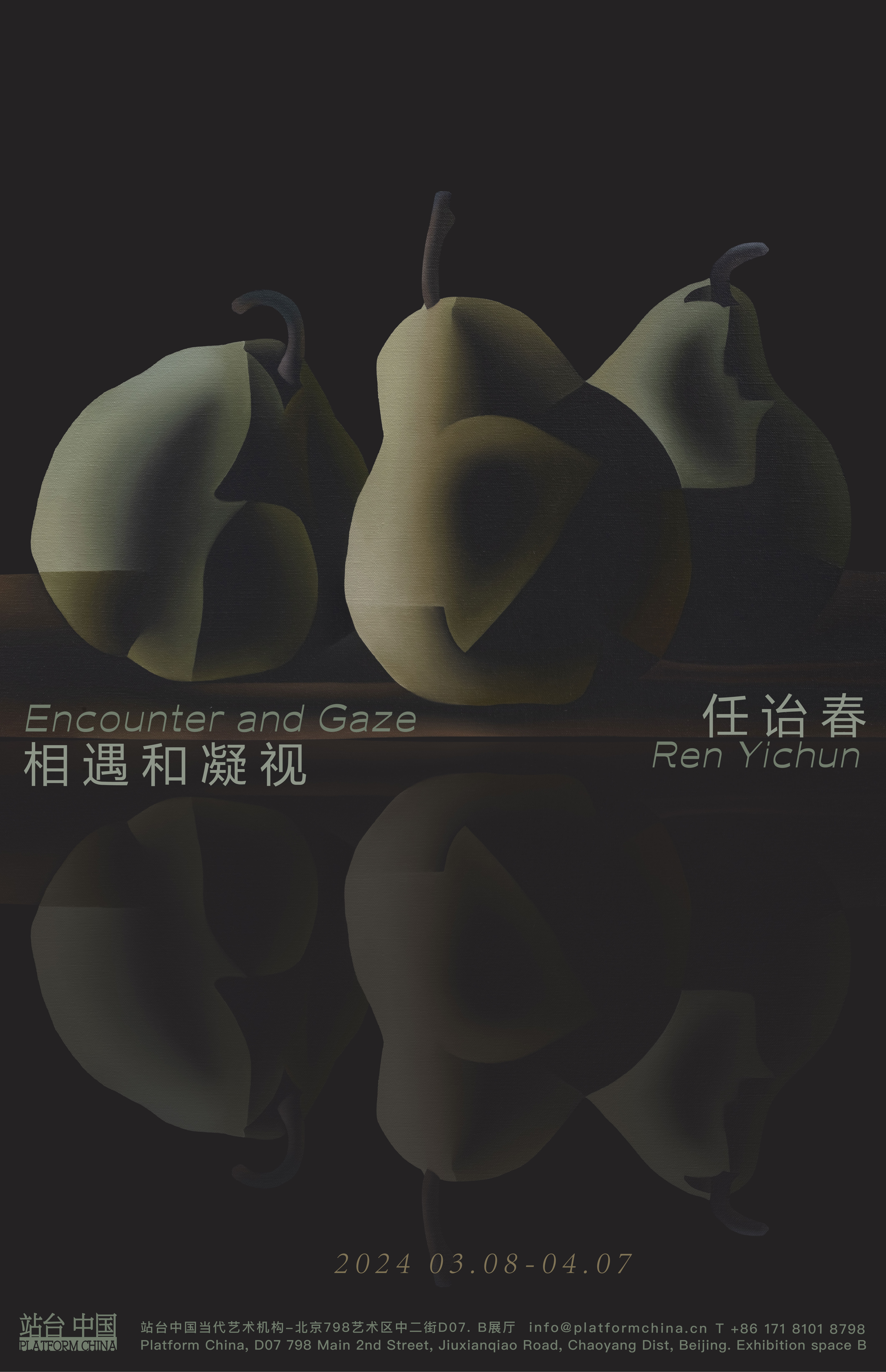
"Encounter and Gaze" will be Ren Yichun's first solo exhibition at Platform China Contemporary Art Institute, opening on March 8th. Platform China proudly announces its exclusive representation of the artist Ren Yichun.
Born in 1994, Ren Yichun graduated from the Oil Painting Department of Xi'an Academy of Fine Arts in 2017 with a bachelor's degree, and obtained a master's degree from the Oil Painting Department of China Academy of Art in 2020. Currently based in Beijing, her painting revolves around flowers, still life, and space, but these are not depicted as the main subjects of her canvases. Ren reconstructs the internal dynamics of objects, the relationships between objects, and their connections to the external world through her own eyes, making relationships the true subjects of her paintings. A single apple, a leaf, and a sheltered space appear equally significant, even though they coexist and relate to each other in the act of encounter.
"Encounter and Gaze," as a way of observing and perceiving the world, involves mutual exchange between the viewer and the object. It shapes not only the internal dynamics of painting but also connects to the artist's emotions and cognition beyond the canvas. Encounter signifies a special relationship that emerges between the artist and the depicted objects, not directed towards a detached observer but evolving into an internal symbiosis and connection. In this process, the sensory faculties of the subject gradually awaken. "Gaze" is a continuation and deepening of this process, representing not just a simple act of vision but the embodiment and externalization of individual subjectivity. In the cool light and misty visual atmosphere, the artist's undisclosed emotions and thoughts imply complex interactions between the individual and themselves, others, and the world. Through prolonged contemplation of the world, their own existence is projected into time and space, establishing a close connection and exchange with them. The disappearance of the "self" quietly shapes identity and position, rather than serving as a projection of power structures and desires.
This reconstruction of vision may extend beyond the canvas to a broader perspective, concerning how we understand ourselves, our relationship with the outside world, and welcoming a return to observation through self-reflection. As Ren Yichun puts it, "The most important aspect of all encounters lies in the process of gazing, casting aside inherent mental barriers, opening up to truly face and feel each other, and discovering new things through mutual communication and exchange."